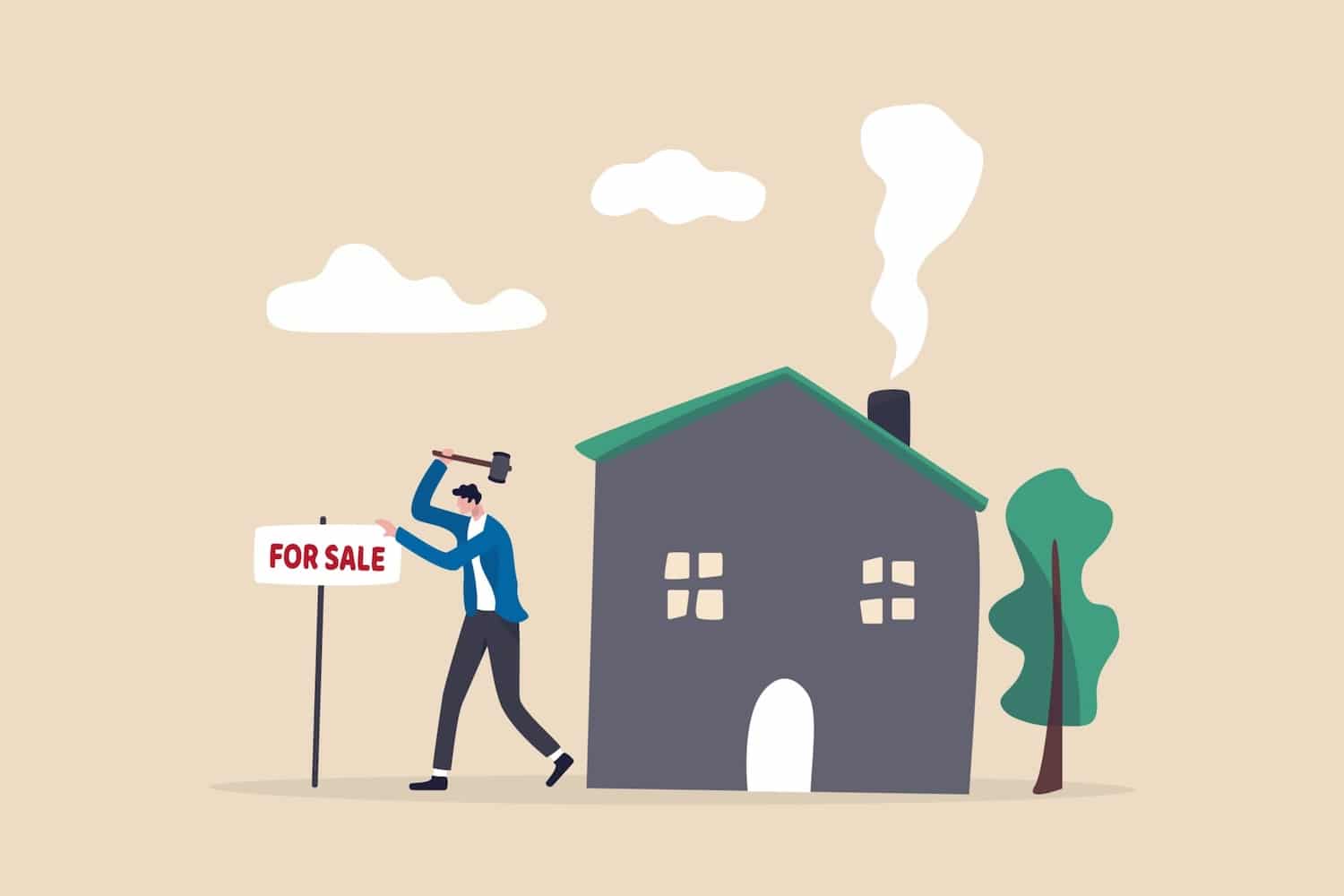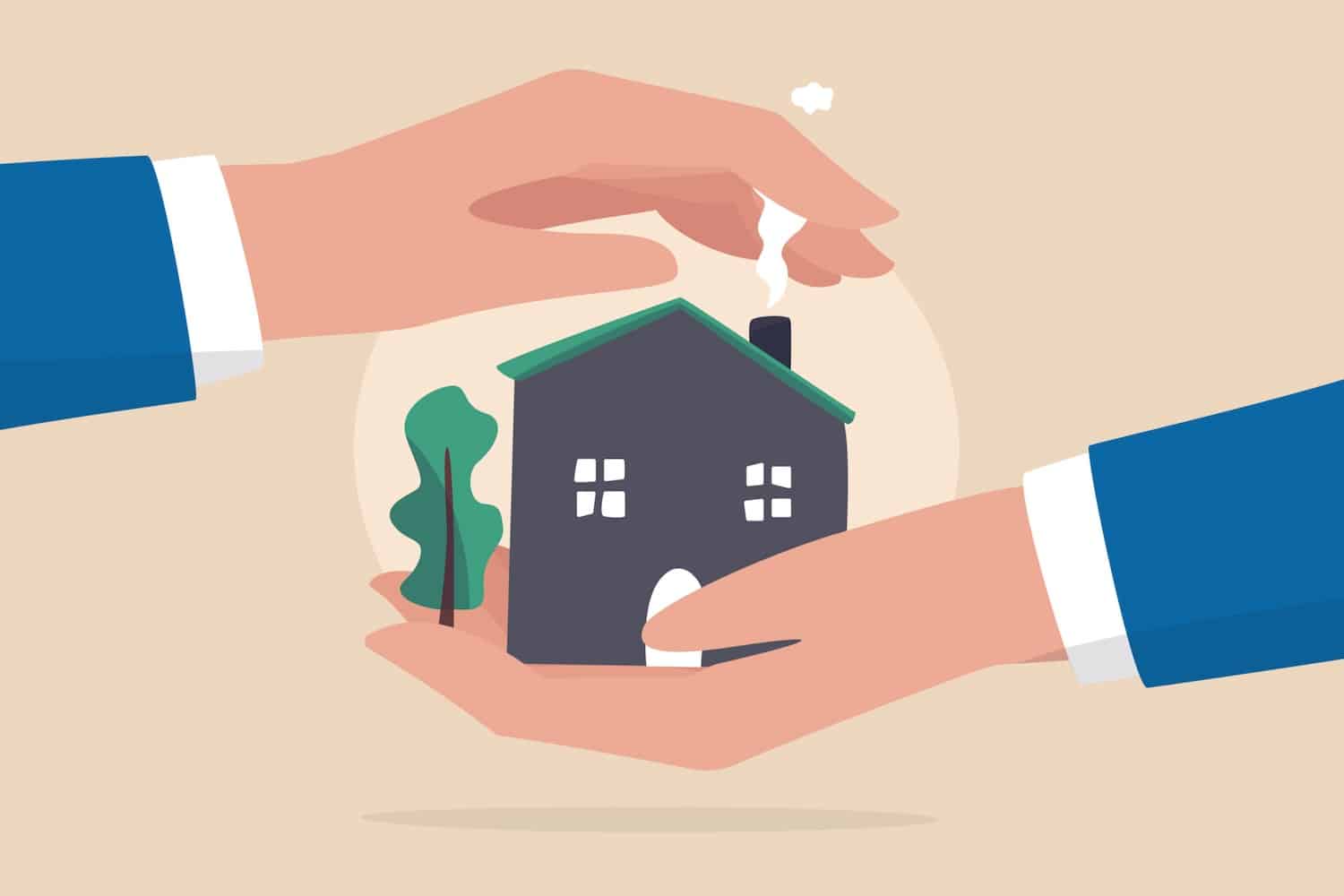Looking to invest in real estate in the UK? Discover the pros and cons of investing in social housing with this guide to ensure you make an informed decision.

If you’re looking for an ethical and rewarding way to grow your funds without incredibly high risk, investing in social housing in the UK could be an excellent option.
To help you get acquainted with this investment option, we’ve compiled this comprehensive guide, providing you with all the info you need on the perks and downsides of purchasing social housing in the UK. We’ll cover everything from government incentives to financing options and tenant rights so that you can make an informed decision on your next real estate venture.
What Is Social Housing?
Social housing is a term used for a system of affordable rental housing provided by the UK government to vulnerable people with a low income who cannot afford to rent or buy a home on the private market. Social housing provides access to a decent and secure place to live for everyone, regardless of their income level. Providers of social housing are typically local councils, housing associations, charities or social care operators.
For private investors, social housing costs depend on location and the type of property they want to purchase. Prices within the social housing market typically begin from £80,000 and offer returns of 8-10%. Social housing provides a secure financial return while also helping address local housing needs in communities nationwide, making it a reliable and low-risk investment opportunity to invest in UK property.
Investing in social housing is financially rewarding but also positively impacts local communities. By providing more affordable housing options in the UK, people can find homes that fit their needs and budgets, helping alleviate the current housing crisis. Social housing projects are also often built for sustainability, providing more eco-friendly living options.
This means investing in social housing is a great way to make a difference while also making a reliable and low-risk investment in the UK.
Investment in Social Housing: Pros & Cons
Before we get into the pros and cons of investing in social housing in-depth, here’s an overview.
| Pros | Cons |
| No maintenance or management costs. | Commercial valuation. |
| Hands-free property investments. | Restrictions on rent and sale. |
| High social impact. | Legal fees and taxes can quickly add up. |
| Secure return on investments. | |
| FRI lease agreements. | |
| A good way to diversify your portfolio | |
| An excellent way to preserve money for the long term | |
| Affordable housing is built for sustainability. |
The Pros of Social Housing Property Investment
So, is it worth investing in the social housing sector?
Although social housing has its cons, the pros far outweigh them. Let’s look at some of the benefits of investing in social housing in the UK.
1. No Maintenance and Management Costs
All aspects of managing the property, including tenant placement, rent collection, and property maintenance are taken care of. This is done by the housing operator in charge of the property, typically a local council or housing association. So landlords can be comfortable knowing that this specialised entity is taking care of his maintenance and property management.
2. Hands-free Property Investments
Due to the nature of the operating provider in place and an FRI lease, landlords of social housing properties have a completely hands-free property investment to add to their investment portfolio. They never need to worry about maintenance, damages, late rent payments, or managing the tenants, as the housing association will take care of all of this for you.
3. High Social Impact
Buying social housing for supported living is an excellent opportunity to contribute to society by creating much-needed rental accommodation for people who can’t afford regular market rents and securing long-term tenancies for those in need. Not only does this keep families together and help individuals become financially independent, but it can also strengthen community ties and contribute towards economic growth in the locality.
4. Secure Returns
One of the many pros of social housing investment is it can provide secure returns that are particularly attractive. This high yield is due to the high need for social housing in the UK, often resulting in long waiting lists for social rental properties. Social housing is a fundamental need and the UK government encourages investment in this sector.
5. Diversification
Investing in affordable housing is a viable strategy to diversify your investment portfolio — it offers an alternative to other investment types, such as stocks and shares, that may be volatile. This approach is becoming increasingly popular among UK investors as the demand for affordable housing grows. The UK has seen a significant increase in affordable housing investments in recent years, with some investors even opting for crowdfunding platforms to invest in these properties.
6. FRI Lease Agreements
With an FRI lease, the landlord shifts the responsibility of property maintenance to the tenant on the lease. This can lead to cost savings for the landlord, as they are no longer directly responsible for repair and upkeep expenses. FRI leases distribute risk between the landlord and the tenant. The tenant assumes the risk of property maintenance and repair, which can be beneficial for the landlord, especially in cases of unforeseen damages or depreciation. Since the tenant is responsible for property repairs, the landlord can anticipate a more stable and predictable income, as they are not required to set aside funds for ongoing maintenance and repairs.
7. Long-Term Investment
Social housing is usually a property investment that requires a long-term commitment from investors, often spanning several years. This type of investment can benefit individuals seeking a secure and low-risk option with a long-term perspective. For instance, investing in social housing units in cities with high demand can offer investors a steady flow of rental income and the potential for capital appreciation in the long run.
8. Sustainable and Eco-Friendly
In the UK, numerous social housing projects are constructed with sustainability as a priority, incorporating eco-friendly materials and designs. This is one of the pros of social housing that attracts investors keen on making socially responsible investments that benefit the environment. For example, a socially responsible investor may invest in an affordable housing development that utilises energy-efficient appliances and renewable energy sources like solar panels to lower carbon emissions.
Cons of Social Housing Property Investment
Although there are many pros to investing in social housing projects, it’s essential to know some cons to consider. Here are some possible downsides to investing in social housing:
1. Limited Choice of Location
One of the significant challenges facing social housing projects is the limited choice of location. This can significantly impact the attractiveness of social housing assets as potential tenants or property investors may not find the location suitable to their preferences.
It’s essential to carefully evaluate potential locations and assess their proximity to employment centres, schools, and amenities to ensure the long-term success of social housing investment. When you invest with us at Yield Investing, we scout for the best possible location to ensure you get the best investment return.
2. Restrictions on Renting Social Housing
In the UK, renting out social housing has restrictions. Landlords are given a lease agreement with the local housing provider, but these terms will vary depending on the housing provider. This means investors cannot rent their property out on the open market as they have a tenant in place, which can restrict options for tenants. However, this is also the agreement that ensures the housing provider will pay your rent regularly and on time.
3. Legal Costs and Taxes
Buying social housing in the UK comes with legal costs and taxes. You must factor these costs of buying a property in the UK into your budget before deciding whether a social property suits your needs. These expenses may include legal fees, stamp duty, and other transaction costs.
Types of Social Housing in the UK
In the UK, social housing comes in various forms, each with its own characteristics and management structures. Each type of social housing in the UK caters to different needs and circumstances, providing affordable and secure housing options for various segments of the population. The availability and specific characteristics of social housing can vary across different regions in the UK.
Below are the main types of housing offered by the UK government as part of the social housing scheme.
Council Housing
Council housing, also known as local authority housing, is owned and managed by local government authorities (councils). These properties are typically rented out to individuals and families needing affordable housing. Council housing was historically the most common type of social housing, but its proportion has decreased over time.
Housing Association Properties
Housing associations, also known as Registered Social Landlords (RSLs), are independent, non-profit organizations that provide affordable housing. They are separate from local authorities and manage their own housing stock. Housing association properties are similar to council housing in terms of affordable rent and long-term tenancies.
Shared Ownership
Shared ownership is a type of social housing where a household purchases a share (usually between 25% to 75%) of a property and pays rent on the remaining portion. This allows people to get onto the property ladder with a lower deposit and mortgage, and they can gradually increase their share of ownership over time in a process known as “staircasing.”
Supported Housing
Supported housing provides accommodation and support services for vulnerable individuals, such as those with physical or mental disabilities, the elderly, or survivors of domestic violence. These properties may have additional facilities and staff to assist residents with specific needs.
Temporary Accommodation
Temporary social housing is provided to individuals and families facing homelessness or urgently needing housing. It offers short-term solutions until a more permanent housing option becomes available.
Sheltered Housing
Sheltered housing, also known as retirement housing or extra care housing, is designed for elderly people who want to live independently but may require some support or assistance. These properties often have additional safety features and communal areas for residents.
Community-Led Housing
Community-led housing projects are initiatives driven by local communities to develop and manage their own affordable housing solutions. These projects may involve cooperatives, community land trusts, or self-build schemes.
Yield Investing’s buy-to-let social housing/supported living portfolio comprises mainly of units across many locations in the UK, such as Middlesbrough, Durham, Bradford and Hartlepool. We offer our clients incredible investment opportunities without worrying about any additional maintenance costs or going through complex legal processes like shared ownership through traditional methods. You can reach us here to learn more about getting started with investing in social housing property.
Who pays for social housing in the UK?
Social housing in the UK can be paid for by various sources, including the following:
- The government
- Local authorities
- Housing associations
Local authorities may also provide funding and support for affordable housing projects in their area.
Housing associations, and non-profit organisations, play a significant role in providing social housing in the UK, often working in partnership with local authorities and private developers.
Private developers may also contribute to social housing through Section 106 agreements, which require them to provide a percentage of affordable homes in new developments.
Is there an investment case for social and affordable housing in the UK?
Yes. There’s an investment case for social and affordable housing in the UK. For one, there’s a shortage of social housing in the UK, particularly in the North East and other major cities, which has led to rising housing costs and a lack of social options for low-income households.
The demand for social housing is expected to grow in the coming years due to population growth, changing demographics, and increasing levels of homelessness. Investing in social and affordable housing can provide long-term stable returns for investors while addressing a critical societal need. Additionally, government subsidies and tax incentives may be available to social and affordable housing project investors.
Learn More About Investing in Social Housing in the UK
We know you’re looking for financial security, and trusting your investment strategies is essential when making life-changing decisions. Yield’s Investing’s social housing/supported living developments provide access to low-risk investment opportunities that offer a secure return on investment – so you can rest assured knowing you’re making a sound financial decision.
We have a wide range of social housing investments that cater for all kinds of budgets:
- Low-risk development projects
- Refurbished older properties
- Hands-free property investments
- Focus on passive income
Whatever your financial goals or budget, Yield Investing ensures that you find exactly what you’re looking for — securely and affordably! Contact us today to get started.


